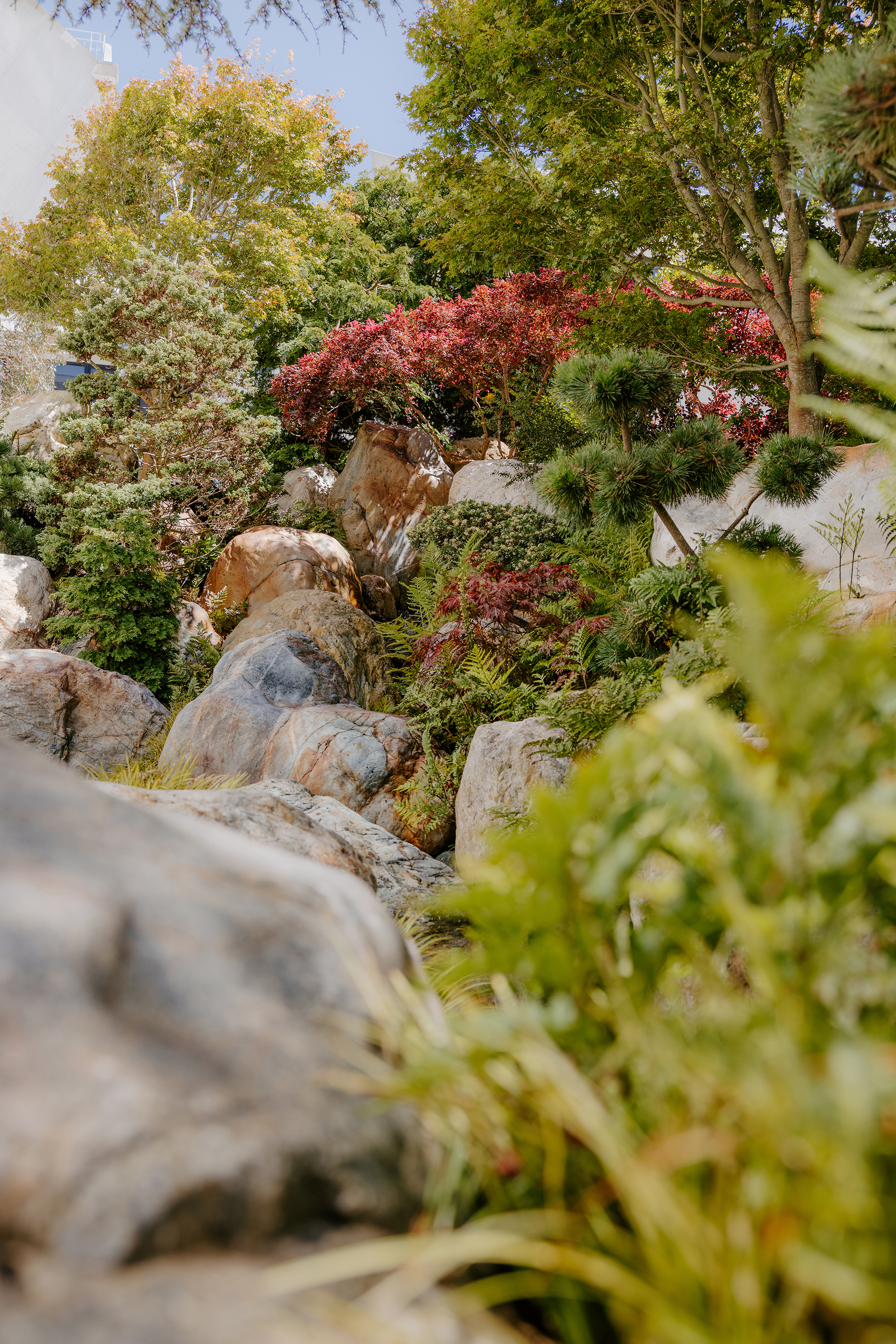Ruth Asawa had designed this Garden of Remembrance to memorialize the Japanese American students who had been forced to leave San Francisco State University during World War Two and enter incarceration camps — which she also experienced. To create the Garden, Asawa was assisted by her friend, San Francisco State's retired art professor Mark Johnson, and two expert landscape gardeners, Isao Ogura and Shigeru Namba.

The Garden is located between Burk Hall and the Fine Arts buildings on San Francisco State University’s campus. The Garden is a grassy area with boulders where students would sit and study, with a pretty waterfall and foliage surrounding it. Nowadays, the waterfall is a popular place for graduation photos at SF State.
However, the boulders, the waterfall, and the foliage all have a significance to Asawa. The boulders represent the incarceration camps that were dispersed in the United States during World War II. The foliage represents the thriving community after incarceration. And the waterfall represents the renewal of the community. There is also a bronze scroll that tells the story of the students’ incarceration.
Learn more about Asawa’s intent for the Garden of Remembrance on her website.
News
SF State exhibition examines legacy of Japanese American incarceration
Fine Arts Gallery presents new artwork reflecting on the Garden of Remembrance.
Internment camp victims honored in Garden of Remembrance
The community gathered Feb. 19 for the 40th anniversary of the Bay Area’s first Day of Remembrance.
S.F. State honors internees from World War II
The university unveiled a new memorial and waterfall garden to honor the experience.
Japanese-Americans interned during World War II honored by SFSU
Nearly 300 people gathered today for the dedication of the Garden of Remembrance.